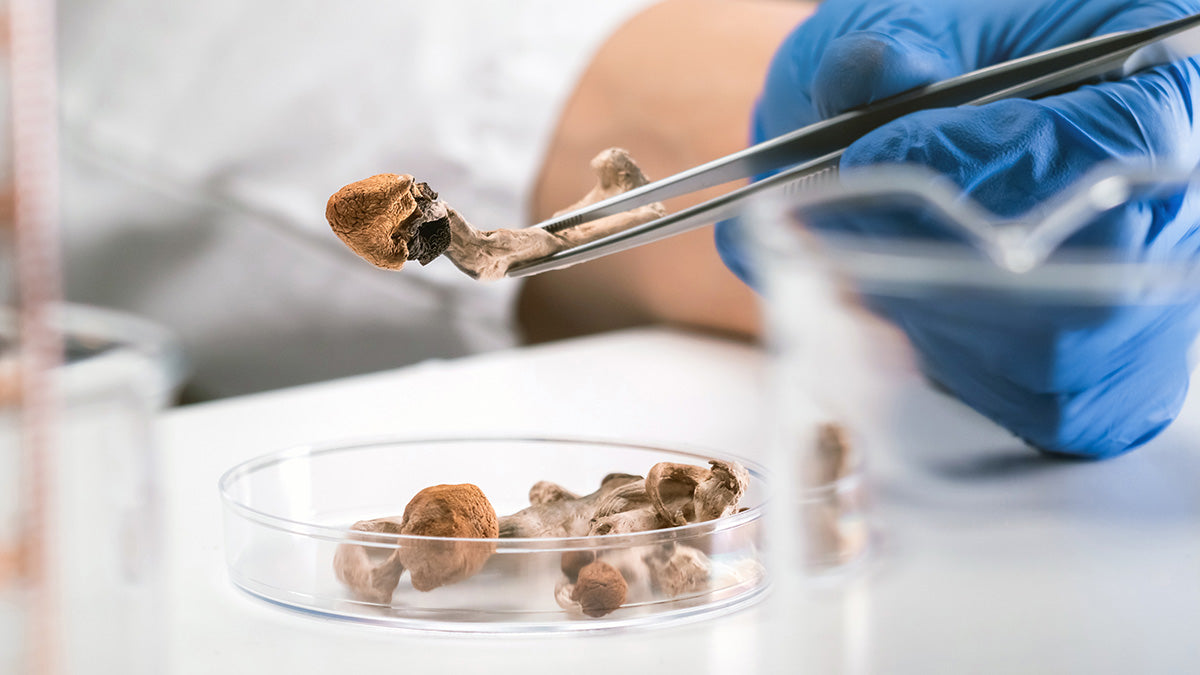Psilocybin Treatment for Depression Rewires the Brain

Scientists at UC San Francisco and Imperial College London have found that psilocybin can help depressed people. Psilocybin is a naturally occurring compound produced by more than 200 species of fungi, known for psychedelic effects.
In particular, psilocybin fosters greater connections between different regions of the brain. This may free depressed people from long-held patterns of rumination and excessive self-focus.
A research paper is published in Nature Medicine. Scientists note that, while psilocybin therapy is known to show antidepressant potential, its therapeutic actions haven’t been well understood.
The researchers argue that the results of this study suggest an antidepressant mechanism for psilocybin therapy. The mechanism is global increases in brain network integration.
The scientists studied fMRI brain scans from nearly sixty participants. They were given psilocybin or a placebo. In addition to the drugs, all the participants received the same type of psychotherapy.
The results of this study show the psilocybin treatment reduced connections within brain areas that are tightly connected in depression. And treatment increased connections to other regions of the brain that had not been well integrated. The participants treated with psilocybin experienced an improvement of depressive symptoms, which lasted for weeks after the end of the treatment with psilocybin.
“In previous studies we had seen a similar effect in the brain when people were scanned whilst on a psychedelic, but here we're seeing it weeks after treatment for depression, which suggests a carry-over of the acute drug action," says research leader Robin Carhart-Harris in a press release issued by US San Francisco.
Psilocybin and other psychedelics, like ayahuasca, seem to affect neural connections in brain networks that become overactive in depression. The scientists argue that the drugs briefly disrupt these connections, giving them a chance to reform in new ways in the ensuing days and weeks.
"For the first time we find that psilocybin works differently from conventional antidepressants - making the brain more flexible and fluid, and less entrenched in the negative thinking patterns associated with depression," says Imperial College researcher David Nutt. "This supports our initial predictions and confirms psilocybin could be a real alternative approach to depression treatments."
Singularity Hub uses the term “magic mushrooms,” which is not used in the press release or the Nature Medicine paper. “Pioneering trials found that just one or two doses of psilocybin, the main component in magic mushrooms, rapidly pulls people out of severe depression.”
The study found that psilocybin “shakes up global neural networks in the brain, essentially ‘rebooting’ how they communicate and forcing the brain out of its entrenched depressive funk.”
“It might sound trite to say, but I think psilocybin therapy opens up the mind, and that’s its strength,” said Carhart-Harris as reported by Singularity Hub.
Scientists caution that patients with depression should not attempt to self-medicate with psilocybin. "We don't yet know how long the changes in brain activity seen with psilocybin therapy last, and we need to do more research to understand this," says Carhart-Harris. "We do know that some people relapse, and it may be that after a while their brains revert to the rigid patterns of activity we see in depression."
More Articles
Don't miss a beat! In our Pulse Newsletter, Thrivous curates the most important news on health science and human enhancement, so you can stay informed without wasting time on hype and trivia. It's part of the free Thrivous newsletter. Subscribe now to receive email about human enhancement, nootropics, and geroprotectors, as well as company news and deals.
Read more articles at Thrivous, the human enhancement company. You can browse recent articles in Thrivous Views. See other Pulse Newsletter articles. Or check out an article below.
-
This Supplement Protects the Body from High Fat Meals
Scientists have investigated the effects of anthocyanin supplements on adverse metabolic and inflammatory responses to the consumption of a high ...
-
Enhance Muscle Exercise Recovery with This Supplement
Researchers have conducted a rigorous study to evaluate the effects of short-term supplementation with Ginseng on exercise-induced muscle damage, oxidative ...


